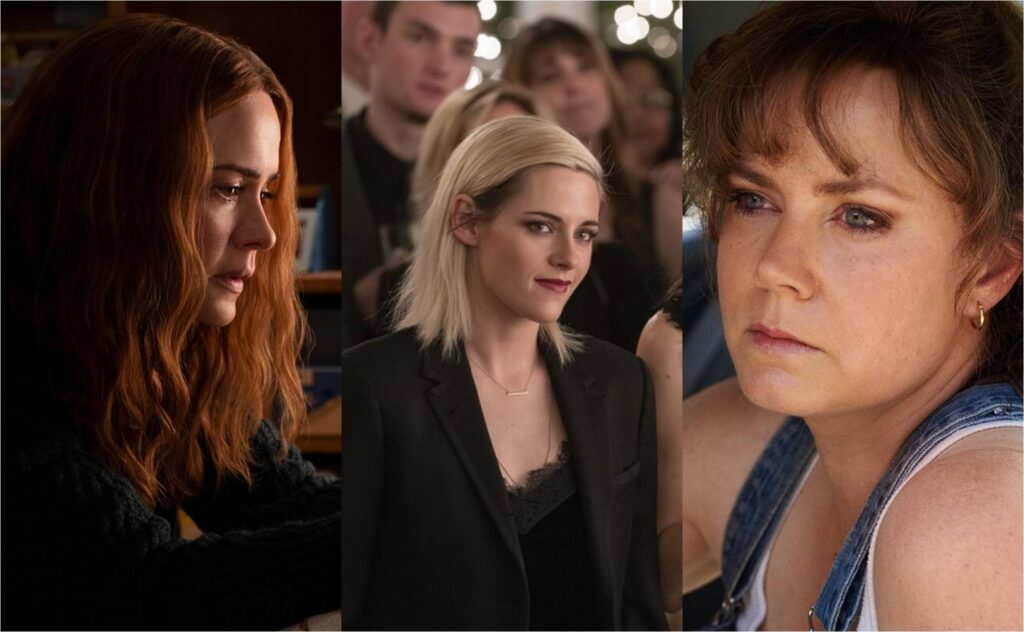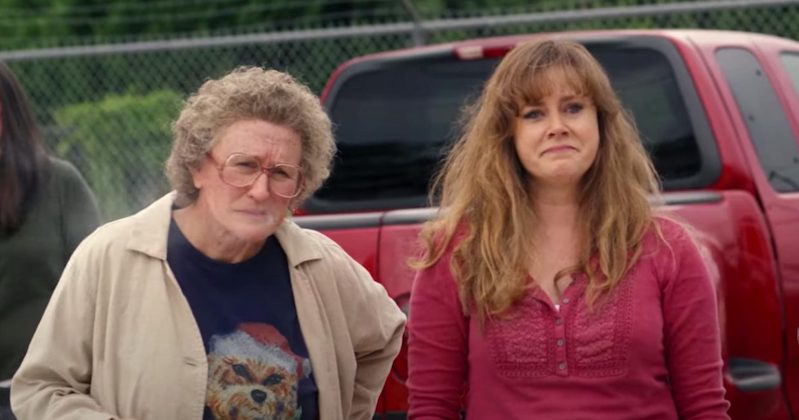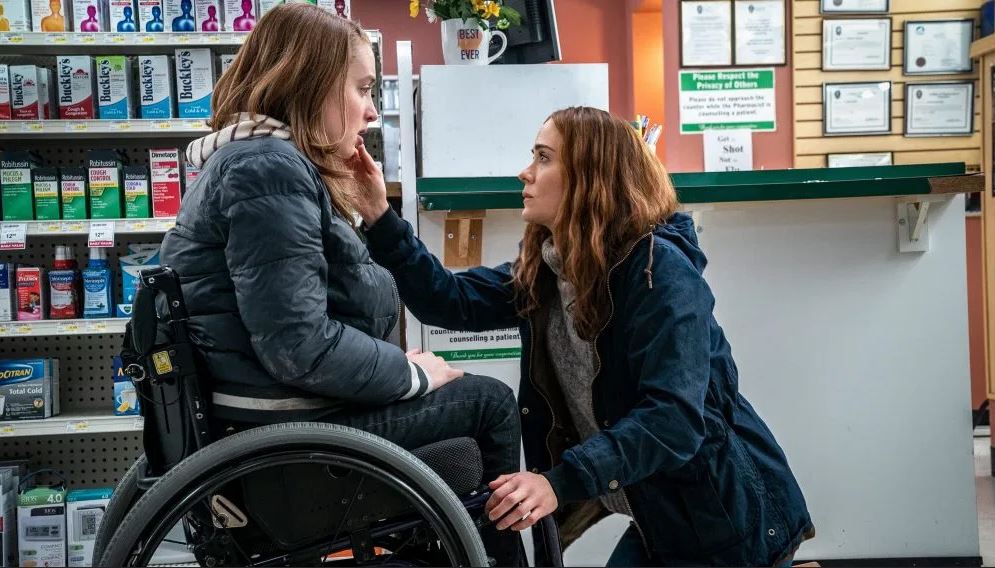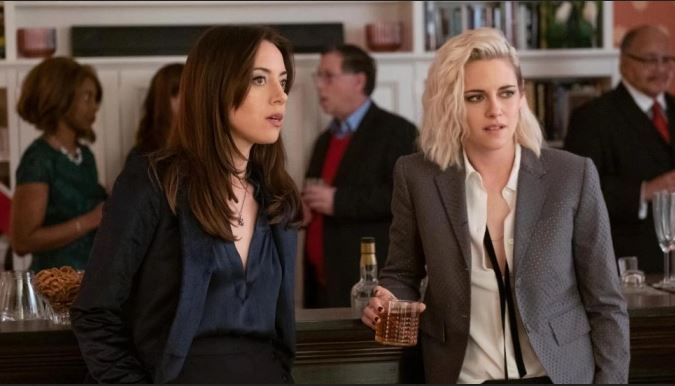
To paraphrase a seven-time Oscar nominee: There are bad terminators—like, say, the COVID-19 pandemic—and there are good terminators—like the streaming services that keep pumping out new movies. Let’s focus on the good, shall we? Here’s a quick look at three recent releases:
Hillbilly Elegy (Netflix). Early in Hillbilly Elegy, Ron Howard’s diverting and facile adaptation of J.D. Vance’s memoir, a promising student at Yale Law attends a soirée, hoping to impress firm recruiters. He’s a smart and sympathetic kid, but he’s quickly overwhelmed by the trappings of luxury—calling his girlfriend in a panic, he asks, “Why are there so many fucking forks?”—and his charm offensive stalls. Then someone refers to West Virginians as rednecks, he bristles in response, and suddenly an evening of schmoozing has disintegrated into a sullen and awkward standoff between rich and poor.
This scene crystallizes Hillbilly Elegy’s clumsy themes, as well as its admirable bluntness. Inelegant but efficient (it runs 115 minutes, and they move briskly), it draws supposed battle lines between the “real Americans” of Appalachia—most of its action takes place in Ohio, where Vance grew up—and the condescending coastal elites who look down on them. It’s a crude and false dichotomy, and whenever Vanessa Taylor’s screenplay attempts to underline the mythical qualities of Vance’s plight—such as an opening voiceover where he declares that for his family, the American Dream always felt out of reach—the movie groans under its own purported significance. (I do admit to laughing when one of J.D.’s classmate-competitors is heralded for having made a “remarkable transformation from Harvard Business.”)

And yet: When Hillbilly Elegy throttles down the preachiness and operates as a straightforward drama, it isn’t without its pleasures. Howard is no stranger to the hero’s journey, and the arc that he provides for J.D.—played first by Owen Asztalos as a whiny adolescent, then by Gabriel Basso as a fundamentally decent man striving to overcome obstacles—has its appeal. At its core, the film is about the joys and pains of familial loyalty, which may be why its most affecting relationship is between J.D. and his sister, Lindsay (Haley Bennett, who lit up the screen earlier this year in Swallow); their fraternal bond is salty, earthy, and genuinely sweet.
Of course, the headline attractions are the two lead actors: Amy Adams as J.D.’s mother, Bev, and Glenn Close as his grandmother, or “mamaw”. Together they have 13 Oscar nominations without a single win, so naturally they both receive some Big Speeches that would play nicely as part of a televised clip package. Of the two, Close fares better; despite being slathered in showy makeup, she manages not to overplay the part, grounding Mamaw with a rumpled dignity. As for Adams, she’s incapable of giving a bad performance, but she’s poorly served here; Bev isn’t so much a real person as a symbol of shattered dreams, and Adams can’t rescue her from the script’s ugly pile of bad-mom clichés. (The other key female figure in J.D.’s life is his girlfriend, a blankly supportive two-dimensional figure played by a helpless Freida Pinto; her primary function is to phone in and provide exposition regarding the contrived ticking-clock scenario that lends the movie its strained suspense plot.)
The real problem with Hillbilly Elegy isn’t its ham-fisted us-versus-them politics, but its lack of convincing personal detail. Bev is a heroin addict, but while we’re constantly told how much she’s struggled in her fight against drugs, we never really see how they’ve ravaged her livelihood. The young J.D., meanwhile, transforms so abruptly from cheerful kid to wayward youth (thereby requiring wise grandmotherly intervention), it’s fair to wonder if Howard dropped a reel in the editing bay. Then again, one of the film’s most memorable scenes occurs when Mamaw watches Terminator 2: Judgment Day, prompting her young but oh-so-precocious grandson to ask if he can switch on Meet the Press instead. Compared to phony moments like that, Howard’s generic approach feels downright refreshing, even when it’s consistently stale. Grade: C+

Run (Hulu). Aneesh Chaganty’s first feature, Searching, was an audacious formal experiment—all of the action transpired on the screens of computers or various smart devices—that doubled as a somewhat shrill cautionary tale about the secrets that teenagers keep from their parents. His follow-up, Run, retains the coiled intensity while reversing the parent-child dynamic. This time around, it’s the daughter who’s in the dark, frantically wondering just what her mom gets up to.
Of course, 17-year-old Chloe (Kiera Allen) is paralyzed by more than just fear. She suffers from an assortment of maladies—all defined during the chilling opening crawl—that have confined her to a wheelchair and forced her to juggle countless medications. Still, she seems perfectly sanguine about her lot in life, and she’s adjusted to her fate effortlessly: Her mother, Diane (Sarah Paulson), dotes on her and homeschools her, and they’re both anxiously awaiting a potential acceptance letter from UW, where Chloe will finally be able to spread her metaphorical wings. And yet… why does Diane always check the mail first? Why has their internet connection been on the fritz? How come Chloe can’t have her own phone? And who’s that lurking in the background of the frame, as the musical score blares ominously?
The first 40-odd minutes of Run are a rather masterful exercise in tension-building and info-parceling. Chaganty has a knack for operating within tight spaces, and he slowly amps up the movie’s claustrophobia factor, turning Chloe and Diane’s handsome Seattle home into a neatly appointed prison. (Filming took place in Canada.) As Chloe gathers more and more data, Chaganty delivers a series of expertly calibrated set pieces: a fraught phone call with an oblivious third party, a mad wheeled dash to the pharmacy, a perilous journey down a flight of stairs, an even more desperate escape onto a rooftop. It’s taut, tidy, and riveting.
It’s perhaps inevitable, but nevertheless disappointing, that Chaganty feels compelled to ratchet things up even further, tossing handcuffs and pistols and poisonous chemicals into an already volatile mixture. As a result, the second half of Run plays like a schlocky B movie—entertaining, certainly, but increasingly untethered from the astute specificity that sharpens its early passages. (For a far more disturbing look at similar material, check out Proxy, though only if you have a strong stomach.)
Still, even as the plot goes haywire, Chaganty’s technique remains steady, as do his actors. Paulson, in a role that’s only slightly less crazed than her turn in Ratched, is creepily sincere, lending credibility to madness. She’s complemented beautifully by Allen, who uses her eyes to convey flinty intelligence, while also revealing both inner and outer strength. Run may have its limitations, but while Allen is disabled in real life, her potential as an actor appears to be unbound. Grade: B-

Happiest Season (Hulu). The holidays are a time when families come together, which is why they’re often an occasion for bitterness, jealousy, and dread. Given this, you might expect the title of Happiest Season to be a cruel irony, and for it to wield its homey Christmastime setting as a spade that ruthlessly excavates its characters’ long-disguised malices and deep-seated fears. You wouldn’t be entirely wrong; throughout the film, insults are hurled, feelings are hurt, and scars are ripped open. But the surprise of this smart, delightful movie, which was directed by Clea DuVall from a script she wrote with Mary Holland, is how warm it is. It’s a tender and unapologetic weepie, except instead of extracting tears, it harvests joy.
Initially, however, its primary sensations are anxiety and confusion. Following a lovely title sequence that renders the first year of a blooming relationship in storybook-style images, the film opens with Abby (an excellent Kristen Stewart) traveling to a Pittsburgh suburb for Christmas to meet the family of her girlfriend, Harper (Mackenzie Davis). The catch is that, while Harper is out among their friends, she’s continued to hide her sexuality from her parents and siblings—among her excuses is that she doesn’t want to endanger her father’s mayoral run in their staunchly conservative hometown—meaning that Abby must spend the next week pretending to be her straight roommate.
Does hilarity ensue? Not exactly. Happiest Season could fairly be dubbed a queer rom-com, but the comedy side of the equation can be patchy. An ice-skating competition between Harper and her uber-competitive older sister (Alison Brie) doesn’t capitalize on its potential, while a sequence where Abby finds herself being interrogated by mall security (in the form of professional funnypeople Timothy Simons and Lauren Lapkus) feels imported from a bawdier, less nuanced picture. That said, there are still some big laughs, most of them afforded to the splendid supporting cast. Holland is wonderful as Harper’s younger sister, Jane, a vibrant and wholesome presence whose sheer lack of vanity is its own reward, while Daniel Levy steals scenes by the bushel as John, Abby’s caustic but gallant best friend; a quiet runner involving his mishaps caring for a pet fish illustrates the screenplay’s economy alongside its wit.
But the heart of Happiest Season lies in its relationships, and not just its central one. DuVall imbues the movie with an extraordinary generosity, allowing all of her characters to be messy and flawed without ever losing sight of their essential humanity. Secondary figures, such as Harper’s exes (played by Aubrey Plaza and Jake McDorman), acquire a sense of dimension atypical to the genre, while her parents (Victor Garber and Mary Steenburgen) are realistically imperfect, straddling the line between old-fashioned and oppressive. In fact, the film’s bravest choice is to make Harper something of a villain. In shielding her identity from her parents, is she not devaluing Abby’s own worth? Is her unwillingness to come out a sign of fearful deference, or does she simply care less about her girlfriend than herself?
Happiest Season explores these dilemmas with compassion and without judgment. It recognizes the unique complexities that queer people face—a spectrum that John eloquently describes in a key scene—while at the same time forcefully arguing for tolerance and against bigotry. And its luminous lodestar, as is so often the case, is Stewart, who gives yet another rich and slippery performance, rippling with desire and heartache and pride.
Happiest Season doesn’t reinvent the romantic comedy so much as revitalize it, adding a fresh and gratifyingly queer spin on the genre while still largely hewing to its basic conventions. Its conclusion is larded with syrup, and I suppose one could argue that its gooey sentiment betrays its emotional sophistication. But syrup can make a nourishing meal that much tastier, and the characters’ inevitable triumph here feels honest and earned. And so, far from being a feint, the title ends up delivering on its promise. A truly happy movie is its own kind of gift. Grade: B+
Jeremy Beck is the editor-in-chief of MovieManifesto. He watches more movies and television than he probably should.
